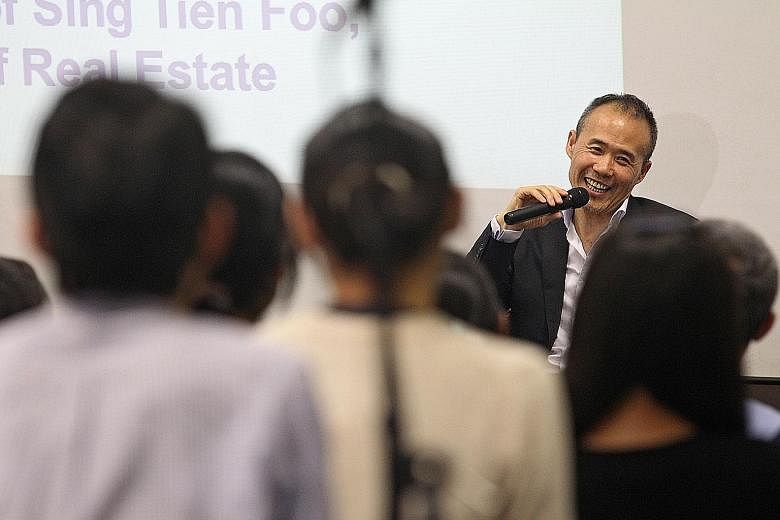HONG KONG • A boardroom battle at China's leading property developer is into its seventh month, exposing tensions between state control and market forces, and Beijing now appears to have had enough, executives and market experts say.
Late last year, financial conglomerate Baoneng amassed around a 24 per cent stake in China Vanke, a US$30 billion (S$40 billion) home-builder for the middle classes, prompting speculation of a hostile bid. It has since added more shares and sought to oust Vanke's board.
Mr Wang Shi, 65, who founded Vanke as an office equipment company in 1984 - and is as well known for being the first Chinese man to climb the highest mountains in all seven continents - has called Baoneng "barbarians" with no credibility.
China Resources, a state-owned group and previously Vanke's biggest shareholder, has sided with Baoneng to block a recent US$6.9 billion "white knight" shares-for- land deal between Vanke and the operator of the Shenzhen metro system - a deal that would dilute both Baoneng's and China Resources' holdings in Vanke.
But China Resources opposes Vanke's board ouster.
The protracted and very public power struggle is testing Beijing's resolve, especially as it looks to reform its big corporations.
It will want to avoid the unedifying spectacle of one of its state- owned enterprises (SOEs) being party to damaging Vanke's value and reputation, say some of those following events closely.
"It is clear Beijing is involved because the saga makes officials look very ugly amid the push on SOE reform," said Mr Alvin Cheung, associate director of Prudential Brokerage in Hong Kong.
He said that Vanke is seen as a corporate model - where management holds non-controlling shares and a state-owned company is a major shareholder but does not get involved in day-to-day operations.
"Beijing is highly concerned but will not intervene publicly," Mr Cheung said.
A Vanke executive, who did not want to be identified due to the sensitivity of the issue, said it seemed Beijing wanted to calm the waters and stem the tide of damaging media headlines.
In a June 28 editorial, China's official Xinhua news agency said the confrontation between Vanke's management and its major shareholders had descended into "irrational wilfulness" that was hurting growth, employees and shareholder returns.
It said that companies should seek compromise solutions beneficial to all shareholders and protect their rights.
"Twenty years ago, this was unthinkable; an official government document would have settled any case," said Mr Liu Junhai, director of the Business Law Centre at Renmin University of China. "Replacing administration with capitalism and shareholder rights - this is a big step in China's corporate governance."
Mr Liu said he expects to see more such power struggles in China as shareholders use market rules to exert control. "It will get more common for companies to play the market game using company law, securities law and stock exchange regulations," he said.
Baoneng, China Resources and the State-owned Assets Supervision and Administration Commission of the State Council did not respond to requests for comment. Vanke declined to comment.
Three Vanke insiders told Reuters the company has no clear "plan B" to fend off Baoneng if the Shenzhen metro deal falls through. It is likely to be blocked as both Vanke's major shareholders oppose it.
Mr Wang, criticised by some investors for spending too much of the past five years studying at Harvard and Cambridge, and not enough time at Vanke, may find he is part of a solution.
Prudential's Mr Cheung said Mr Wang's departure could be a positive catalyst, removing one element of the boardroom battle and appeasing some investors.
According to the Vanke insiders, there is talk within the company that Mr Wang may retire early next year. "It (retirement) will happen by the end of this year to early next year... It is a mutual expectation in the company," said a Vanke executive.
REUTERS

